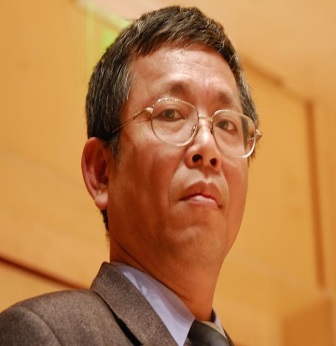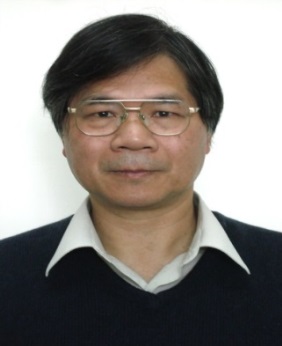CONFERENCE
REGISTRATION
SUBMISSION
|
Keynote I : Learning Control: Ideas and Problems in Adaptive Fuzzy Control

Speaker: Shun-Feng Su, National Taiwan University of Science and Technology
Abstract: Intelligent control is a promising way of control design in recent decades. Intelligent control design usually needs some knowledge of the system considered. However, such knowledge usually may not be available. Learning becomes a important mechanism for acquiring such knowledge. Learning control seems a good idea for control design for unknown or uncertain systems. To learn controllers is always a good idea, but somehow like a dream. It is because learning is to learn from something. But when there is no good controller, where to learn from? Nevertheless, there still exist approaches, such as adaptive fuzzy control, that can facilitate such an idea. It is called performance based learning (reinforcement learning and Lyapunov stability). This talk is to discuss fundamental ideas and problems in one learning controller -- adaptive fuzzy control. Some deficits of such an approach are discussed. The idea is simple and can be extended to various learning mechanisms. In fact, such an idea can also be employed in various learning control schemes. If you want to use such kind of approaches, those issues must be considered in your study
Bio: He is now a Chair Professor of the Department of Electrical Engineering, National Taiwan University of Science and Technology, Taiwan, R.O.C. He is an IEEE Fellow and CACS fellow. He has published more than 200 refereed journal and conference papers in the areas of robotics, intelligent control, fuzzy systems, neural networks, and non-derivative optimization. His current research interests include computational intelligence, machine learning, virtual reality simulation, intelligent transportation systems, smart home, robotics, and intelligent control.
Dr. Su is very active in various international/domestic professional societies. He is now the president of the International Fuzzy Systems Association. He now is also in the Boards of Governors of IEEE Systems, Man, and Cybernetics Society and act as the Young Professionals subcommittee chair. He also serves as a board member of various academic societies. Dr. Su also acted as Program Chair, Program Co-Chair, or PC members for various international and domestic conferences. Dr. Su currently serves as Associate editors of IEEE Transactions on Cybernetics, IEEE Transactions on Fuzzy Systems, and IEEE Access, and the Editor-in-Chief of International Journal of Fuzzy Systems.
Keynote II : Intelligent Adaptive Learning Control Systems for Wheeled Mobile Robots:

Speaker: Ching-Chih Tsai, National Chung-Hsing University, Taichung, Taiwan
Abstract: This talk presents some advances and challenges in the four technical areas of intelligent adaptive learning control systems for wheeled mobile robots. These four emphasizing areas are reinforcement learning, evolutionary learning control, intelligent adaptive control, and learning via case-based reasoning (CBR). Q-learning of reinforcement learning is introduced and then applied to behavior learning and control of multiple mobile robots as a paradigm. For mobile robots navigating in unknown environments, some new concepts and techniques of bio-inspired evolutionary learning control are developed using evolution computation and fuzzy control logics to construct some useful mobile behaviors. Some stable intelligent learning control using feedforward and recurrent fuzzy neural-network control structures are discussed which have been well employed to motion control of uncertain wheeled mobile platforms. The concept and techniques of learning through CBR are introduced and exemplified via human-robot interaction. Some challenges are briefly stated for future work.
Bio: Dr. Tsai is current a Distinguished Professor in the Department of Electrical Engineering, National Chung-Hsing University, Taichung, Taiwan, where he served the Chairman in the Department of Electrical Engineering from 2012 to 2014. He is an IET Fellow and a CACS Fellow.
Dr. Tsai served as the Chair, Taipei Chapter, IEEE Control Systems Society, from 2000 to 2003, and the Chair, Taipei Chapter, IEEE Robotics and Automation Society from 2005 to 2006. In 2007, he was the program chair of 2007 CACS international automatic conference sponsored by Taipei chapter, IEEE control systems society. In 2010, he served as the program co-chair of SICE 2010 annual conference in Taiwan, which was technically sponsored by IEEE CSS; 2012 International conference on Fuzzy Theory and Its Applications, and the General Chair, 2012-2015 CACS International Automatic Control Conferences. He has served as the associate editors of International Journal of Fuzzy Systems, and IEEE Transactions on Systems, Man and Cybernetics: Systems. His current interests include advanced control methods, fuzzy logics, neural networks, advanced mobile robotics, intelligent service robotics, intelligent mechatronics, intelligent learning control methods and their applications to industrial processes and intelligent machinery. |

